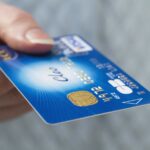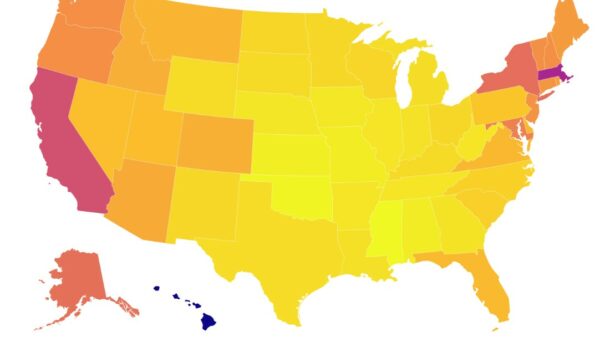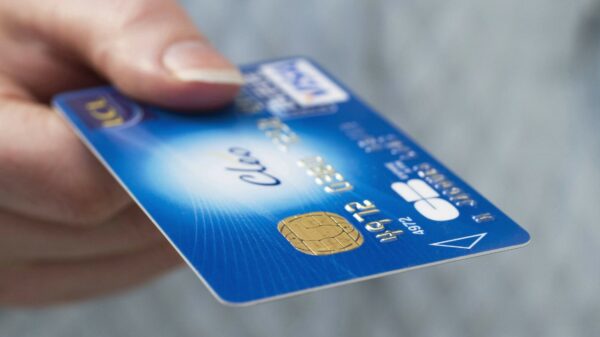Debt and bad credit can be overwhelming and stressful experiences for anyone.
Being in debt or having bad credit can make it difficult to keep up with bills, save money, or make major purchases, and a low credit score can limit your financial options and opportunities.
However, with discipline and a plan, it is possible to get out of debt and improve your credit.
In this blog, we will explore how to get out of credit card debt with no money and bad credit scores.
We will cover everything from understanding your credit card balances current debt and credit status to utilizing government programs and non-profit organizations.
Understanding your current debt and credit status
The first step in getting out of debt and improving your credit is to understand your current financial situation.
This includes reviewing your free credit report, to see exactly how much debt you have and what your credit score is.
To review your credit report, you can obtain a free copy of your credit report from each of the three major credit bureaus (Equifax, Experian, and TransUnion) once per year.
It is important to review all three reports as they may contain different information.
Next, make a list of all your debts, including the creditor, interest rate, and minimum monthly payment. This will help you prioritize which debts to pay off first and give you a better understanding of your financial situation.
It is also essential to assess your financial situation, including your monthly income and expenses, to determine how much you can realistically put toward paying off your debts each month.
This information will be critical in setting a budget and creating a plan to pay off your debts.
By understanding your current debt and credit status, you will be better equipped to make informed decisions and create a plan to get out of debt and improve your credit.
Setting financial goals
Once you clearly understand your debt and credit status, the next step is to set financial goals.
This includes your multiple debts, prioritizing your debts, determining a monthly budget, your minimum debt payments, and creating a plan to pay off your debts.
Prioritize debt
Prioritizing your debts is important to effectively manage your debt repayment.
One common strategy is to focus on paying off high-interest debt first, as this will save you the most money in interest charges in the long run.
Monthly budget
Determining a monthly budget will help you stay on track with your debt repayment goals. Start by doing one monthly payment and tracking your spending for one month to see exactly where your money is going.
Then, create a budget that takes into account your monthly income, essential expenses, and debt repayment.
This will give you a clear idea of how much money you have available each month to put toward paying off your debts.
Finally, create a plan to pay off your debts. This debt management plan can include creating a debt repayment timeline, setting up automatic payments, or seeking the help of a serious debt management program or plan.
Whatever plan you choose, be sure to stick to it and make paying off your debts a priority.
Finding ways to increase income
When trying to get out of debt, it is important to find ways to increase your income.
This can help you put more money towards paying off your debts each month and reach your financial goals faster.
Part-time jobs
One option is to find a side hustle or part-time job to supplement your regular income. This could be anything from freelancing to pet-sitting to driving for a ride-sharing service.
Utilizing your skills and talents can help bring in extra money that can be put toward debt repayment.
Sell unwanted items
Another option is to sell unused items. Decluttering your home and selling items you no longer need can bring in a significant amount of money.
This is a great way to make money without adding more work to your schedule.
Negotiate an increase
Finally, consider negotiating for a raise at your current job. If you have been performing well and have taken on additional responsibilities, it may be possible to increase your salary.
Be prepared to discuss your accomplishments and the value you bring to the company to make a compelling case for a raise.
By finding ways to increase your income, you will be able to put more money towards paying off your debts and reaching your financial goals faster.
Reduce expenses
Another important aspect of getting out of debt is to reduce your expenses. By cutting unnecessary spending, you can free up more money to put towards paying off your debts each month.
Start by reviewing your monthly expenses and identifying areas where you can cut back. This could include reducing spending on entertainment, dining out, and subscriptions.
Consider making lifestyle changes, such as bringing your lunch to work or canceling cable, to save money each month.
It is also important to review your monthly bills and see if there are any opportunities to reduce expenses.
This could include negotiating a lower interest rate for your monthly bills with a bank or credit union or shopping around for better deals on insurance.
Finally, consider creating a cash-only budget for discretionary spending. This can help you stay on track with your spending and ensure that you only spend money on what is truly important to you.
By reducing your expenses, you will be able to put more money towards paying off your debts each month and reach your financial goals faster.
Remember to be consistent and disciplined with your spending habits, as small changes can add up to significant savings over time.
Utilizing government programs and non-profit organizations
There are several government programs and non-profit organizations available to help individuals get out of debt.
These can provide support, resources, and financial assistance to help you overcome financial difficulties and reach your debt repayment goals.
There are also programs available for individuals with low income, such as debt management plans, which can help reduce interest rates and monthly payments.
Non-profit credit card debt and credit counseling agencies can also be valuable resources. These organizations provide debt counseling and financial education to help individuals understand their debt and develop a plan for debt repayment.
A credit counselor from a nonprofit credit counseling agency can negotiate with creditors on behalf of personal loans for the individual to lower interest rates and reduce monthly payments to help with debt settlement.
Finally, consider reaching out to community resources, such as local churches or non-profits, for additional support. These organizations may be able to offer financial assistance or connect you with resources to help you get back on track with your finances.
By utilizing government programs credit counseling agencies and non-profit organizations, you can get the support and resources you need to get out of debt and reach your financial goals.
Remember to do your research and choose a reputable organization to work with.
Debt settlement companies
Debt settlement companies and even lawyers who specialize in bankruptcy can help you by negotiating with creditors to reduce your monthly payments or set up a new repayment plan.
It’s helpful to work with a professional, especially if you’re not sure about the procedures involved, which is important if you have large amounts of debt.
Improving credit score
Improving your credit score is an important step in getting out of debt and achieving financial stability.
A good credit score can help you get better interest rates on loans and credit cards, which can ultimately lead to lower monthly payments and faster debt repayment.
Review your credit report
To improve your credit score, start by reviewing your credit report and correcting any errors. Your information must be accurate and up to date.
Pay your debts
Next, focus on paying your bills on time and paying down your debts.
This will help you consolidate debt and demonstrate to creditors that you are responsible with credit and able to manage debt effectively.
Get a credit builder loan
Consider using a credit-builder loan or secured credit card to establish a positive credit history. These types of loans or credit cards require a security deposit, which acts as collateral and can help you establish a positive credit history.
Get a debt consolidation loan
Debt consolidation loans can help to reduce your debt as you’re consolidating all your high-interest debt into one, a lower-interest loan with a lower monthly payment.
Debt consolidation loans may have lower rates and better terms, depending on the lender. Always compare loans and rates that different lenders offer.
Don’t apply for more credit
Limit your credit applications and avoid applying for multiple credit accounts in a short period. Each time you apply for credit, it can result in a hard inquiry on your credit report, which can negatively impact your credit score.
By your monthly debt payments and improving your credit score, you can increase your chances of getting better interest rates and ultimately reach your debt repayment goals faster.
Remember to be patient and consistent with your credit management, as improving your credit score can take time.
Summary
Getting out of debt with no money and a bad credit score can seem like an overwhelming task, but it is possible with the right strategies and support.
By understanding your current debt and credit status, setting financial goals, finding ways to increase income, cutting expenses, utilizing government programs and non-profit organizations, and improving your credit score, you can take control of your finances and achieve financial stability.
It is important to remember that getting out of debt is a journey and requires patience, discipline, and consistency. Stay focused on your goals and seek debt relief options from trusted sources to help you overcome financial challenges.










